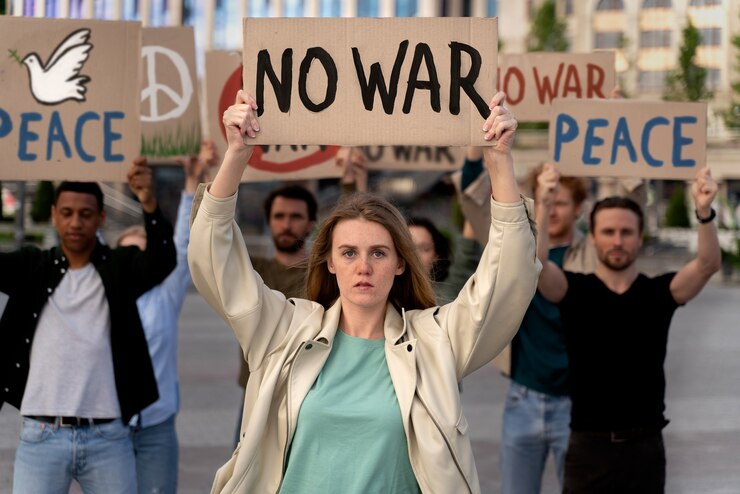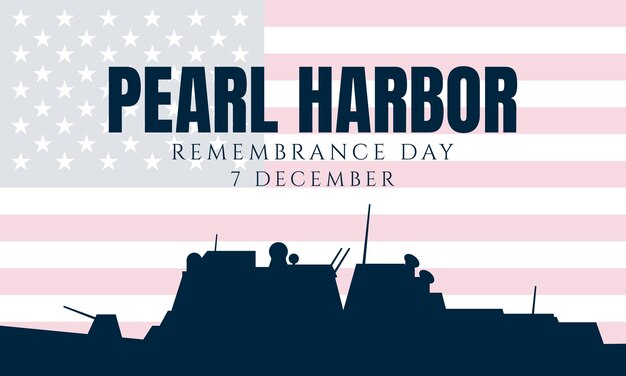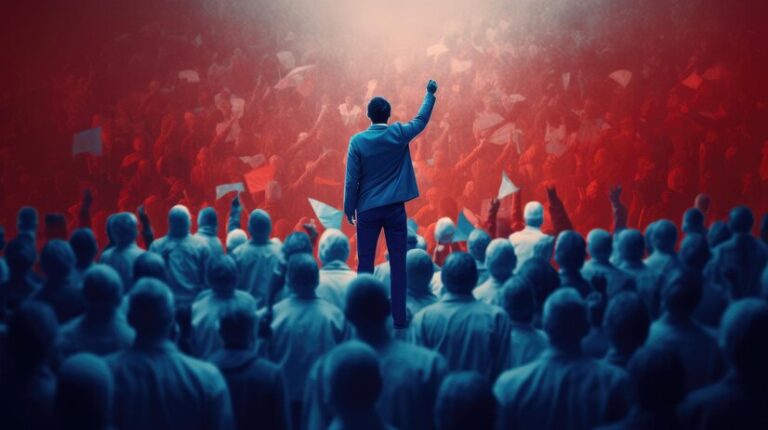Voices of Change: Exploring the Motivations Behind Israel’s Protest Movement
A nation divided, a conflict that seems unending, and a call for change echoing across the globe. The world has turned its attention to Israel’s Protest sweep through its streets and reverberate around the world. But what lies at the heart of this powerful movement? What motivates people from all corners of the earth to stand in solidarity with those seeking justice and peace in the region?
In this thought-provoking blog post, we delve deep into the motivations behind Israel’s protest movement, examining not only its impact on local communities but also how it resonates globally. From exploring the complexities of the Israeli-Palestinian conflict to uncovering stories of resilience and determination, join us as we shine a light on these voices of change.
With tensions running high amidst recent events, fact-checking is crucial in separating truth from fiction. We’ll debunk misinformation surrounding Hamas attacks while shedding light on growing anger over hostage situations that have further fueled unrest within Israel.
But it doesn’t stop there – global demonstrations and boycotts against Israel have taken center stage. Discover how Indonesians are boycotting multinational giants like McDonald’s and Starbucks due to their perceived support for Israel. And witness an Egyptian soda brand reclaiming popularity after embracing calls for boycotting Israeli products.
From local protests within Israel itself to outcries heard far beyond its borders – Africa, Europe, Middle East, North America, Oceania, South America – we explore how worldwide responses have united under one banner demanding change in solidarity with Palestinians.
As we analyze outcomes so far and consider future perspectives, it becomes evident that technology and social media have played a pivotal role in amplifying the
The Israel-Hamas War and its Impact on the Protest Movement
The Israel’s Protest, a brutal conflict with deep-rooted complexities, has left an indelible mark on the protest movement in Israel. As rockets and airstrikes continue to ravage Gaza, anger and frustration have surged within Israeli society. The plight of hostages and allegations of war crimes only fuel the fires of dissent, pushing more people onto the streets in search of justice and change.
Amidst calls for a cease-fire, Israel presses on while Al-Shifa hospital struggles under overwhelming pressure. Stories emerge of IDF soldiers allegedly killing hostages who held white flags – shocking revelations that further galvanize those demanding accountability. In this tumultuous landscape, it becomes clear that the impact of the Israel-Hamas War cannot be understated as it fuels both outrage at home and international solidarity abroad.
Why is the Israeli-Palestinian conflict so hard to resolve?
The Israel’s Protest conflict is an incredibly complex and deeply rooted issue that has plagued the region for decades. There are several key factors that contribute to its difficulty in finding a resolution. Both sides have deep historical and religious ties to the land, which creates strong emotional attachments and competing claims.
Additionally, there are significant political and security concerns for both Israel and Palestine. Each side has legitimate concerns about their own safety and sovereignty, making it difficult to find common ground. Moreover, there are external influences from other countries and actors that further complicate the situation.
The Israeli-Palestinian conflict is multifaceted with a long history of grievances on both sides. Addressing these complexities requires careful diplomacy, compromise, and a genuine commitment from all parties involved to work towards a peaceful resolution.
Fact check: Hamas attacks on Israel spark wave of fake news
The recent Israel-Hamas conflict has not only resulted in physical attacks, but it has also triggered a surge of misleading information. Social media platforms have become flooded with fake news surrounding Hamas’ alleged attacks on Israel. These false narratives spread like wildfire, fueling tensions and further complicating an already complex situation.
Misinformation can be dangerous, as it often leads to misunderstandings and escalates the conflict. In this case, fabricated stories about Hamas’ actions have contributed to the polarization of public opinion and hindered efforts towards peaceful resolution. It is crucial that we remain vigilant in verifying information before sharing or believing it, especially during times of heightened tension.
Growing anger in Israel over the plight of hostages
The recent conflict between Israel and Hamas has left many Israelis feeling a deep sense of anger and frustration over the plight of their fellow citizens who have been taken hostage. The kidnapping and subsequent killings of Israeli teenagers Naftali Fraenkel, Gilad Shaer, and Eyal Yifrach sparked outrage across the country.
As news spread about these tragic events, Israelis were united in their demand for justice and swift action to rescue any remaining hostages. The growing anger among the Israeli population reflects their deep concern for the safety and well-being of their fellow citizens. This heightened emotions further fuelled calls for decisive action to protect Israeli lives from future attacks by militant groups like Hamas.
Israel presses on amid calls for Gaza cease-fire
Israel remains determined to press on with its military campaign in Gaza, despite mounting international calls for a cease-fire. The ongoing conflict has led to widespread destruction and loss of life, with both sides suffering casualties. While many nations are urging an immediate halt to the violence, Israel argues that it is acting in self-defense against Hamas’ rocket attacks. However, critics argue that the Israeli government’s response has been disproportionate and is causing immense suffering among Palestinian civilians caught in the crossfire.
As the world witnesses this devastating conflict unfold, there is a growing urgency for all parties involved to find a diplomatic solution and end the cycle of violence. The international community continues to call for both Israel and Hamas to lay down their weapons and engage in meaningful dialogue towards achieving peace. However, reaching a cease-fire agreement seems elusive as tensions remain high between the two sides.
The situation on the ground remains deeply troubling, with innocent lives being lost every day. The voices demanding an immediate cessation of hostilities are growing louder by the minute as people around the world express their solidarity with those affected by this humanitarian crisis. It is crucial that leaders from all sides come together urgently to seek peaceful resolutions and address underlying grievances fueling this long-standing conflict.
Al-Shifa hospital ‘completely overwhelmed’: Sean Casey, WHO
Amidst the chaos and devastation of the Israel-Hamas conflict, one particular incident has caught global attention: the overwhelming strain on Al-Shifa hospital in Gaza. According to Sean Casey from WHO, this medical facility is completely overwhelmed by the influx of injured patients.
The sheer volume of casualties pouring into Al-Shifa hospital paints a grim picture of the toll this conflict is taking on innocent lives. With limited resources and staff, the hospital struggles to provide adequate care for those in desperate need. The situation highlights not only the immediate crisis at hand but also raises broader concerns about access to healthcare services during times of war.
Israeli hostages killed by IDF were ‘holding white flag’
The tragic incident involving Israeli hostages who were allegedly killed by the IDF while holding a white flag has sparked outrage and raised questions about the conduct of the Israeli military. The claim that unarmed civilians, seeking safety and protection, were targeted is deeply disturbing.
This incident further intensifies the already heated debates surrounding the Israeli-Palestinian conflict. It highlights the urgency for a thorough investigation into allegations of human rights violations and war crimes committed by both sides in order to hold those responsible accountable. The international community must demand transparency and justice for all victims involved in this devastating conflict.
Ukrainians welcome bid to join European Union
Ukraine’s bid to join the European Union has sparked hope and excitement among Ukrainians. The prospect of closer integration with Europe brings a promise of economic growth, improved living standards, and increased opportunities for travel and education abroad.
For many Ukrainians, joining the EU represents a chance to break away from Russia’s influence and align themselves with Western democratic values. It symbolizes a step towards stability, democracy, and stronger ties with their European neighbors. With hopes high and aspirations even higher, Ukrainians eagerly await the outcome of their bid to join the EU.
The world still needs UN peacekeepers
The world still needs UN peacekeepers, those tireless individuals who risk their lives in the pursuit of global stability and security. They are the unsung heroes, working behind the scenes to ensure that conflicts are resolved peacefully and nations can rebuild from the ashes of war.
In conflict zones across the globe, these brave men and women stand as a symbol of hope. Their presence reminds us that even in times of darkness, there is always a glimmer of light shining through. From Africa to Asia to Europe, they tirelessly patrol volatile regions, mediating disputes and providing humanitarian aid to those most in need.
But their work is far from over. As we witness ongoing conflicts unfold before our eyes, it becomes clear that now more than ever, we need these dedicated peacekeepers on the front lines. Without them, chaos would reign supreme and innocent lives would be lost without reprieve.
Their commitment to peaceful resolutions serves as an inspiration for us all. It reminds us that no matter how dire circumstances may seem, there is always room for diplomacy and dialogue. In a world filled with strife and discord, let us never forget the invaluable role played by UN peacekeepers – true champions of harmony amidst chaos.
EU calls for ‘humanitarian pauses’ in Gaza
The European Union (EU) has joined the chorus of voices calling for “humanitarian pauses” in Gaza. As the conflict between Israel and Hamas rages on, there is growing concern about the civilian casualties and the dire humanitarian situation on the ground.
The EU’s plea for temporary ceasefires aims to provide much-needed relief to those caught in the crossfire. By advocating for these pauses, they hope to create safe spaces for aid workers to deliver essential services like medical assistance, food, water, and shelter. The EU recognizes that these humanitarian gestures are crucial in alleviating suffering and preventing further loss of life.
Global Demonstrations and Boycotts Against Israel
Indonesians boycott McDonald’s, Starbucks over support for Israel. ‘Boycott Israel’ breathes new life into 100-year-old Egyptian soda brand. Zara pulls controversial ad from website after Gaza boycott calls. Are the boycotts against Israel making an impact?
Across the globe, people are taking a stand against Israeli policies through international demonstrations and targeted consumer boycotts. In Indonesia, popular fast-food chains like McDonald’s and Starbucks have faced backlash due to their perceived support for Israel during the conflict with Hamas. Similarly, an Egyptian soda brand that has been around for a century is experiencing a resurgence in popularity as consumers choose to support local alternatives instead of brands associated with Israel.
In response to public pressure, clothing retailer Zara was quick to remove a controversial advertisement from its website following calls for a boycott due to its alleged ties to Israeli products or suppliers. These acts of protest raise important questions about whether these global demonstrations and boycotts are having any significant impact on influencing change or promoting accountability on an international scale.
Indonesians boycott McDonald’s, Starbucks over support for Israel
Indonesians have taken a stand against multinational companies McDonald’s and Starbucks due to their perceived support for Israel. The boycott movement has gained momentum, with many Indonesians opting to avoid these popular fast food chains.
Critics argue that both McDonald’s and Starbucks have shown support for Israel’s Protest through their business activities. This has led to widespread calls for Indonesians to boycott these establishments as a form of protest against the Israeli-Palestinian conflict. As more individuals join this movement, it remains to be seen how these companies will respond and whether or not the boycott will impact their operations in Indonesia.
‘Boycott Israel’ breathes new life into 100-year-old Egyptian soda brand
The recent wave of global boycotts against Israel has led to some unexpected consequences. One surprising outcome is the revival of a century-old Egyptian soda brand, which has seen a surge in popularity due to its support for the boycott movement.
In an act of solidarity with Palestine, many consumers are now choosing to swap their usual soft drinks for this historic Egyptian brand. The company’s decision to publicly align itself with the “Boycott Israel” movement has not only breathed new life into their business but also sparked conversations about the power of consumer activism.
Zara pulls controversial ad from website after Gaza boycott calls
Zara, the popular fashion brand, recently found itself in hot water after releasing a controversial ad that sparked outrage among supporters of the Gaza boycott movement. The ad featured a model wearing a shirt with the words “Love thy neighbor” while standing against a backdrop of destruction and chaos.
The imagery immediately drew criticism from those who believed it was an insensitive attempt to trivialize the suffering and violence happening in Gaza. Calls for a boycott quickly spread across social media platforms, with many expressing their disappointment in Zara’s lack of sensitivity towards such an important issue. In response to the backlash, Zara promptly removed the ad from its website, acknowledging the concerns raised by consumers and pledging to be more mindful in its advertising choices moving forward.
Are the boycotts against Israel making an impact?
Are the boycotts against Israel making an impact? This question has sparked intense debate and divided opinions. Some argue that boycotting Israeli products, businesses, and institutions is an effective way to put pressure on the Israeli government to change its policies towards Palestine. They believe that economic consequences can influence political decisions.
On the other hand, there are those who claim that these boycotts have little impact on Israel’s economy or political landscape. They argue that Israel has a strong global network of trade partners and allies who continue to support them despite calls for boycotts. Additionally, critics of the movement say it unfairly targets individuals and businesses without considering their political stance or motivations.
Regardless of where one stands on this issue, it is clear that the debate surrounding boycotts against Israel is far from settled. The effectiveness of such actions depends on various factors including public perception, international cooperation, and sustained pressure over time. As voices within the protest movement grow louder and gain traction globally, only time will tell if these efforts will result in significant change or remain symbolic gestures in a deeply complex conflict.
Protest Movement in Israel and Worldwide
Protests in Israel have been met with widespread support and participation from both the local population and people across the globe. In Israel, citizens have taken to the streets to voice their frustrations about various issues, including social inequality, housing affordability, and government corruption. These demonstrations reflect a growing discontent among Israelis who are demanding change and advocating for a more just society.
Meanwhile, the protest movement has also gained momentum worldwide as people from Africa to North America unite in solidarity with those fighting for justice in Israel. Demonstrations have been held in major cities around the world, with participants calling for an end to Israeli aggression and expressing their support for Palestinian rights. This global response highlights the interconnectedness of struggles for justice and equality across borders. The protest movement is not limited to one country or region but rather represents a collective effort by individuals from diverse backgrounds coming together to demand change on a global scale.
Local protests in Israel
Local protests in Israel have been a powerful expression of discontent and demand for change. From the bustling streets of Tel Aviv to the historic alleys of Jerusalem, passionate citizens have taken to the streets, raising their voices against injustice. These local demonstrations serve as a poignant reminder that the desire for peace and equality resonates deeply within Israeli society.
In these protests, people from all walks of life come together united by their shared vision for a better future. Students march alongside teachers, artists stand shoulder to shoulder with activists, and families join hands in solidarity. The chants reverberate through city squares, demanding an end to violence and advocating for social justice. Local protests in Israel are not just about making noise; they are about creating lasting change from within the heartland of this complex nation.
Protests in Africa, Europe, Middle East, North America, Oceania, and South America
Protests against the Israeli government’s actions have rippled across continents, uniting people from diverse backgrounds in a global call for change. From Africa to Europe, the Middle East to North America, Oceania to South America, voices are being raised and hands are joining together in solidarity.
In cities and towns worldwide, protesters have taken their concerns to the streets, demanding justice and an end to violence. The magnitude of these demonstrations reflects the widespread outrage over the situation in Israel-Palestine and underscores the urgency felt by individuals around the globe. This unified outcry serves as a powerful reminder that human rights transcend borders and that people everywhere have a stake in promoting peace and equality.
Worldwide responses and solidarity demonstrations
Worldwide responses and solidarity demonstrations in support of the Israel protest movement have been gaining momentum across the globe. From Africa to Europe, the Middle East to North America, Oceania to South America, people are coming together to voice their concerns and stand in solidarity with those fighting for change.
In cities around the world, protesters have taken to the streets waving banners and chanting slogans in support of justice for Palestinians. Social media platforms have become a powerful tool for spreading awareness and organizing these demonstrations, allowing individuals from all corners of the globe to unite under one cause. The global response highlights not only growing international concern over human rights violations but also how interconnected our world has become when it comes to advocating for change.
Motivations and Voices within the Protest Movement
Within the protest movement in Israel, there are a multitude of motivations that drive individuals to take action. From college campuses to international organizations, voices are rising up against the Israeli government’s policies towards Palestine. One key aspect of this movement is the Boycott, Divestment, and Sanctions (BDS) campaign, which seeks to put economic pressure on companies linked to illegal Israeli settlements.
These actions stem from a deep-rooted belief in justice and equality for all people. Many protesters argue that supporting or doing business with these companies directly contributes to human rights violations against Palestinians. As awareness grows about these issues, more people are joining the call for change and demanding an end to the occupation. It is not just activists who are speaking out; artists, sports figures, trade unions, and advocacy groups have also lent their voices in support of Palestinian rights.
Despite differing motivations within the protest movement itself – ranging from advocating for political solutions to seeking diplomatic interventions – they all share one common goal: peace and stability in the region. Social media platforms have played a crucial role in amplifying these voices of change by allowing information sharing and organizing demonstrations globally. The power of technology has made it easier than ever before for individuals around the world to show solidarity with Palestinians and demand accountability from governments involved.
As discussions continue around potential resolutions to the Israeli-Palestinian conflict, it is clear that grassroots movements like these will play an essential role in shaping future perspectives. By bringing attention to injustices through protests and boycotts while fostering dialogue among diverse groups of people worldwide, there is hope for progress toward lasting peace between Israelis and Palestinians.
Censoring voices on campus
In recent years, the issue of censoring voices on campus has become a heated topic of debate. Universities, supposed bastions of free speech and open dialogue, have been criticized for stifling certain viewpoints that may be deemed controversial or offensive by some. This has sparked concerns about intellectual diversity and the suppression of alternative perspectives.
The push for safe spaces and trigger warnings has created an environment where dissenting opinions are often silenced in order to protect students from discomfort or emotional distress. While these initiatives aim to create inclusive environments, they can inadvertently limit freedom of expression and hinder critical thinking. The fear is that this type of censorship not only prevents individuals from openly expressing their ideas but also inhibits the exploration of different perspectives necessary for intellectual growth and understanding.
What is BDS?
The BDS (Boycott, Divestment, and Sanctions) movement is a global grassroots campaign that aims to put pressure on Israel to end its occupation of Palestinian territories. It calls for the boycott of Israeli goods, divestment from companies supporting the Israeli government’s policies, and sanctions against Israel until it complies with international law.
BDS advocates argue that these nonviolent actions can have economic and political consequences for Israel, pushing it towards ending its occupation and achieving justice for Palestinians. Critics of the movement claim that it unfairly targets Israel while ignoring other conflicts around the world. However, supporters argue that BDS is a peaceful means to voice opposition against human rights violations in Palestine without resorting to violence.
Companies linked to illegal Israeli settlements
Companies linked to illegal Israeli settlements have come under scrutiny and faced backlash from the protest movement. These companies are accused of profiting from the occupation of Palestinian land, which is considered a violation of international law. Activists argue that supporting these companies perpetuates human rights abuses and undermines efforts for peace in the region.
Calls for boycotts and divestment campaigns have targeted these companies, urging consumers to reconsider their support. The movement aims to hold them accountable for their involvement in the occupation, putting pressure on them to disengage from illegal activities. Despite some pushback, this aspect of the protest movement highlights a growing awareness about corporate complicity and seeks to bring about change through economic means.
Companies that have expressed support for Israel
Many companies around the world have expressed support for Israel, either through public statements or by engaging in business partnerships and investments. These companies believe in the right of Israel to defend itself and view it as a valuable ally in the region.
Some notable examples include tech giants like Microsoft, Intel, and Google, which have established significant operations in Israel and actively collaborate with Israeli startups. Additionally, major fashion brands such as Adidas, Calvin Klein, and Gap have been known to express their support for Israel through various initiatives. By aligning themselves with Israel, these companies aim to showcase their commitment to peace and stability in the region while also tapping into the country’s innovative spirit and thriving economy.
Paying more attention to BDS
The Boycott, Divestment, and Sanctions (BDS) movement has gained momentum in recent years, with many individuals and organizations paying more attention to its goals and strategies. BDS aims to exert pressure on Israel through economic and political means, advocating for the rights of Palestinians. Supporters argue that boycotting companies linked to illegal Israeli settlements is a way to promote justice and equality.
By targeting businesses that profit from the occupation of Palestinian territories, advocates hope to bring about change and put an end to human rights violations. The movement has faced criticism as well, with opponents arguing that it unfairly singles out Israel. As debates continue around the effectiveness of BDS tactics, it is clear that more people are taking notice of this grassroots movement’s efforts towards achieving a just resolution in Israel-Palestine conflict.
I didn’t even understand that I was a Zionist
One of the interesting voices within the Israel protest movement is that of individuals who have discovered their own identity as Zionists. For some, this realization has come as a surprise. They admit that they didn’t fully understand or appreciate what it meant to be a Zionist until they witnessed the events unfolding in their country.
The conflict and its impact on innocent lives have forced many Israelis to grapple with their beliefs and values. It has prompted them to question their role in supporting a state that has been involved in controversial actions. This soul-searching process has led some protesters to reevaluate their stance and acknowledge their deep-rooted connection to Israel, even if it means advocating for change from within.
Advocacy groups, artists, sports, and trade unions involved in the movement
Advocacy groups, artists, sports, and trade unions have all played a significant role in the protest movement for change in Israel. These diverse voices bring together different perspectives and experiences to raise awareness about the Israeli-Palestinian conflict. Advocacy groups are at the forefront of organizing protests and mobilizing support for boycotts against companies linked to illegal Israeli settlements.
Artists have also used their platforms to amplify these voices through music, art installations, and performances that shed light on the plight of Palestinians. Sports teams and athletes have joined the cause by refusing to participate in events held in Israel or by wearing symbols of solidarity during games. Trade unions take a stand by supporting workers’ rights and advocating for justice within their industries. Together, they contribute to creating a united front calling for change in Israel.
The Call for Change and Future Perspectives
Analysis of the impact and effectiveness of the protest movement is crucial in understanding its call for change. The voices within this movement are diverse, ranging from advocacy groups to artists, sports figures to trade unions, all united in their desire for justice and equality. Through their collective efforts, they aim to bring attention to companies linked to illegal Israeli settlements while also highlighting those that have expressed support for Israel.
One cannot overlook the power of technology and social media in amplifying these voices of change. Platforms like Twitter and Instagram allow protesters to connect with others worldwide, spreading their message far beyond physical demonstrations. The potential for political and diplomatic solutions is also a key consideration moving forward. In envisioning a future of peace and stability in the region, it is vital that dialogue be prioritized over violence, as lasting change can only come through open communication between all parties involved.
Analysis of the impact and effectiveness of the protest movement
The protest movement in Israel has undeniably made a significant impact and sparked widespread debate. Supporters of the movement argue that it has brought attention to the Israeli-Palestinian conflict on a global scale, forcing governments and international organizations to address the issue. The effectiveness of the movement can be seen in the growing number of boycotts against Israel and calls for divestment from companies supporting Israeli settlements.
On the other hand, critics question whether these protests will bring about any real change or if they are merely symbolic gestures. They argue that while public pressure is important, it ultimately falls on political leaders to make meaningful policy decisions. Additionally, some fear that these movements may further polarize an already complex situation, making it even more difficult to find a peaceful resolution.
Analyzing the impact and effectiveness of the protest movement is multifaceted and subjective. It raises crucial questions about how social activism can influence political outcomes and shape public opinion. Only time will tell if these protests have lasting effects or if they will fade away without achieving tangible results.
The role of technology and social media in amplifying voices of change
The role of technology and social media in amplifying voices of change cannot be underestimated. In today’s digital age, these platforms have become powerful tools for mobilizing and organizing protests, allowing individuals to connect with like-minded activists across the globe. Through hashtags, viral videos, and online campaigns, social media has provided a platform for marginalized voices to be heard and shared widely.
With just a few clicks, anyone can share their thoughts, photos, or videos on platforms like Twitter, Facebook, or Instagram. This accessibility has given rise to countless grassroots movements that would not have been possible without the reach of social media. Whether it’s documenting acts of injustice or spreading awareness about important causes related to Israel protests, technology has empowered individuals to take a stand and rally support from people all over the world.
Additionally, social media serves as an invaluable tool for information dissemination during times of crisis. It allows protesters on the ground to provide real-time updates and firsthand accounts that may otherwise go unnoticed by traditional news outlets. By bypassing gatekeepers and directly sharing their stories with the global community through live streaming or instant messaging apps like WhatsApp or Telegram, activists are able to create immediate awareness around urgent issues.
The potential for political and diplomatic solutions to the Israeli-Palestinian conflict
The Israeli-Palestinian conflict is an incredibly complex and deeply entrenched issue that has defied resolution for decades. However, despite the challenges, there remains potential for political and diplomatic solutions to bring about lasting peace in the region.
Political negotiations have proven to be a crucial avenue for dialogue between Israel and Palestine. Through open discussions and compromise, both sides can work towards finding common ground and addressing their respective concerns. Additionally, international mediation efforts from organizations such as the United Nations can play a vital role in facilitating these negotiations and ensuring fairness throughout the process.
Diplomatic initiatives aimed at fostering understanding between Israelis and Palestinians are also key to resolving this long-standing conflict. By promoting dialogue at various levels of society, including grassroots movements, community leaders, and government officials, it becomes possible to build trust and lay the foundation for sustainable peace agreements.
While achieving a comprehensive solution may seem daunting given historical tensions, political will coupled with genuine commitment from all parties involved can create opportunities for progress in finding peaceful resolutions. The potential exists; it now requires continued dedication from both Israelis and Palestinians to pursue political dialogue backed by meaningful diplomacy.
Envisioning a future of peace and stability in the region
As we reflect on the motivations behind Israel’s protest movement and the global demonstrations against Israel, it is essential to look towards the future with hope for peace and stability in the region. While the road ahead may be challenging, there are glimpses of progress that give us reason to believe that change is possible.
One key factor in envisioning this future lies in analyzing the impact and effectiveness of the protest movement itself. By raising awareness, amplifying voices, and putting pressure on governments and corporations, these protests have brought attention to issues that were often overlooked or dismissed. The power of collective action should not be underestimated when it comes to fostering meaningful change.
Technology and social media have played a significant role in empowering individuals within this movement. The ability to share information instantly across borders has allowed voices from all corners of the globe to unite under a common cause. Through hashtags, viral videos, and online activism campaigns, people around the world can show solidarity with those affected by conflict.
However, achieving lasting peace requires political will and diplomatic solutions as well. It is crucial for world leaders to engage in dialogue that prioritizes finding mutually beneficial resolutions rather than perpetuating divisions. Only through open communication can trust be built between communities torn apart by decades of conflict.
Our vision for a peaceful future necessitates recognizing each other’s humanity rather than reducing complex conflicts into simplistic narratives pitting one side against another. It calls for acknowledging historical grievances while seeking paths towards reconciliation.
Although challenges lie ahead on this journey towards peace in Israel-Palestine region; nevertheless through sustained efforts rooted in justice compassion understanding; there is potential transformational change. The voices of the protest movement have shown us that people from all







